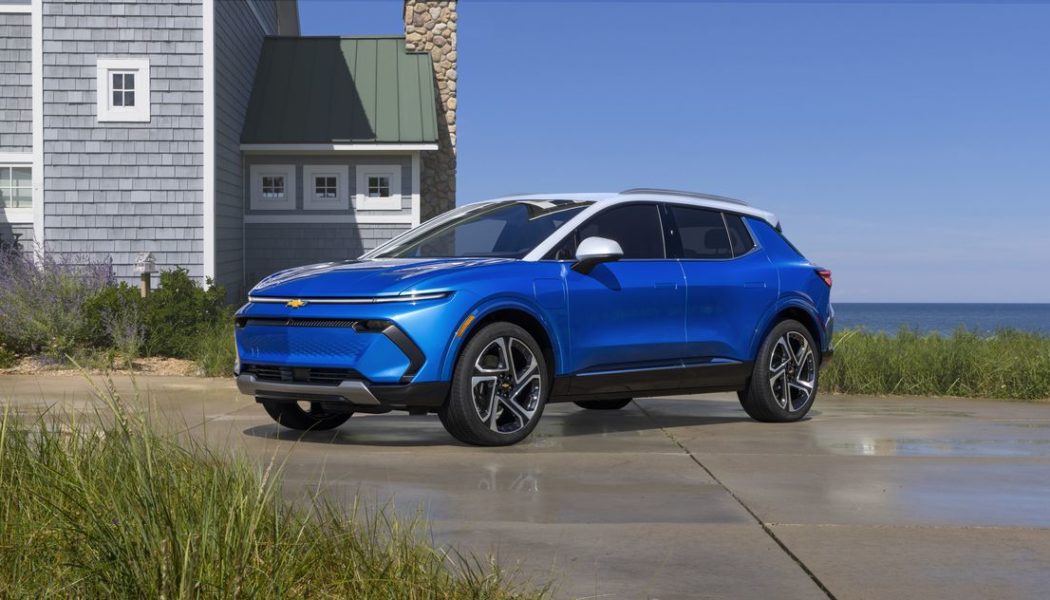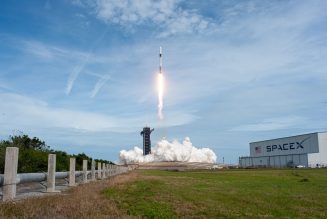Chevrolet won’t follow its sister brands Cadillac and Buick in offering buyouts to dealers who don’t want to make the necessary investments to upgrade to electric vehicles, Scott Bell, global vice president, told The Verge.
In fact, the dealers who do elect to take buyouts from Cadillac and Buick could end up exclusively selling Chevy vehicles, which Bell argues is good for his brand.
“The minute they pull back and say, ‘You know what, I’m not ready to go all in for those brands,’ they’re now 100 percent a Chevy dealer, which is a good thing for Chevrolet,” Bell said at a pop-up event in Manhattan celebrating the unveiling of the 2024 Chevy Equinox EV.
Last week, Buick’s top executive said that all 2,000 of the brand’s franchise dealers in the US will be given the opportunity to take a buyout. Taking the buyout means the dealer will no longer be affiliated with the Buick brand and can no longer sell Buick vehicles, although they can still sell other General Motors vehicles.
The deal mirrored a similar one offered by Cadillac to its dealers who didn’t want to invest in upgrades needed to sell the brand’s new EVs, like the 2023 Cadillac Lyriq. That process ended last year, with GM reporting that around one-third, or 575 dealers, took the buyout.
Cadillac and Buick’s loss is Chevy’s gain, according to Bell. (All three brands, along with GMC, are owned by General Motors.) He noted that the dealers that represent 95 percent of Chevy’s sales are already selling at least one electric vehicle: the Chevy Bolt. To Bell, those dealers have demonstrated a willingness to spend the money that’s necessary to sell even more EVs, which are set to be released next year.
:no_upscale()/cdn.vox-cdn.com/uploads/chorus_asset/file/23999602/MY24_Chevrolet_Equinox_EV_3LT.jpg)
“They’ve already raised their hand: ‘I’m in on the Bolt,’” Bell said. “They certainly have committed to the Chevy brand.”
It’s a bit hard to gauge how dealers broadly feel about EVs, but some evidence suggests they are less than thrilled about having to upend their business to accommodate an entirely new class of vehicles. Many car dealers have been in the business for years. Internal-combustion engines are their livelihood, and they are understandably hesitant to fully embrace the switch to electric.
Many automakers are requiring dealers to make expensive upgrades to their stores to accommodate charging stations and special equipment to service EVs. These improvements can run upwards of $300,000 per dealership. There’s also a growing rift between franchise dealers, which enjoy a lot of state-level political support, and direct-to-consumer brands like Tesla and Rivian, which eschew the franchise model.
Bell said he sees Chevy’s 3,000-plus dealers as being on the front line in GM’s multi-billion-dollar push to court mainstream car buyers to switch to electric. And the dealers seem to be on board.
“We want to beat Tesla on EVs,” Keith McCluskey, dealer chairman of the Chevrolet National Dealer Council, told Automotive News earlier this year. “We want to meet demand.”
The stakes are arguably just as high for Chevy as they are for Buick and Cadillac. The brand is central to GM’s EV strategy, with three new EVs coming out next year: the Silverado, Blazer, and Equinox. And while other EVs have gone up in price, Chevy has decided to keep the Bolt EV and Bolt EUV at a reduced price through the end of the year, underscoring GM CEO Mary Barra’s commitment to put “everyone in an EV.”
“Lyriqs and Hummers are awesome, but these are the three biggest segments in the market,” Bell said, gesturing to the show car versions of the Silverado, Blazer, and Equinox. “I won’t make a bombastic claim here today, but nobody else is going to touch this.”









